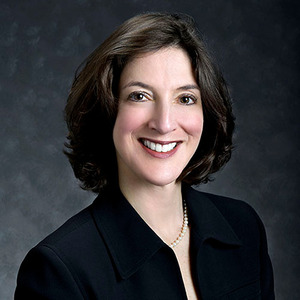
Carol L. Karp
Power List Profile
Professor of Ophthalmology, Dr. Richard K. Forster Chair in Ophthalmology, Dr. Ronald and Alicia Lepke Professorship in Corneal Diseases, Bascom Palmer Eye Institute, University of Miami School of Medicine, Florida, USA
Why did you decide to pursue ophthalmology/your subspecialty?
Sight is a magical sense. Even as an ophthalmologist, I am amazed by how the eye and brain allow us to see. I think most of us would give up an arm or a leg instead of our vision. Being able to help people regain and maintain vision is truly satisfying and rewarding.
Who are your role models?
I have been blessed by so many role models; I cannot list them all without monopolizing the entirety of this website! My interest in ophthalmology began in the late 1980s when I spent time in Peru with Dr. Francisco Contreras. His goal was the prevention of blindness and helping those of low socioeconomic resources.
Once in my residency at the Kellogg Eye Center at the University of Michigan, I was blessed to have Dr. Eve Higginbotham and Dr. Paul Lichter as mentors. They both took me under their wings and nurtured me into the physician I have become. Drs. Sugar, Soong, and Myers were the spark to my interest in corneal diseases. They made it fascinating and fun!
In the early 1990s, I landed at the Bascom Palmer Eye Institute at the University of Miami where I have spent my entire career. Drs. Norton, Clarkson, Alfonso, Forster, Culbertson, and Pflugfelder were some of the role models who combined ethics, science, with first class patient care.
What is your proudest contribution to ophthalmology/your subspecialty?
My passion is ocular surface oncology. I hope that my work with topical immuno/chemotherapies has helped to provide our patients with effective treatment for their surface tumors. Furthermore, I have so enjoyed discovering the power of the high resolution OCT to help with the diagnosis and management of these tumors.
What do you credit most for your success over the course of your career?
Brainstorming with my colleagues. Most of my great ideas have come from discussions with my fellow faculty and students. Also having a wonderful friend and research partner – Dr. Anat Galor – has helped me to enjoy my research. We brainstorm every morning before 6am, while I exercise and she walks her dog! Amazing projects have come from these early morning sessions!
Finally, I credit my husband and sons for my success. They bring me great joy and have always supported me, allowing me to do what I love.
What would you like to see change in ophthalmology/your subspecialty over the next 10 years – and why?
I want to see more women and under-represented minorities in leadership positions.
If you weren't an ophthalmologist, what would you be doing?
I love to bake. I would love to have a fancy bakery and create wonderful treats that would bring a smile to all.
If you could restart your career, would you do anything differently?
I would have taken/learned grantsmanship early in my career. It is an art that I would have liked to start early in my profession.
When you are no longer practicing, what do you want your legacy to be?
I hope that I am remembered for my dedication to my patients, colleagues, and the field of ophthalmology, specifically ocular surface oncology. I have so enjoyed mentoring young students, residents, and fellows. I hope that a small part of me will remain a part of their lives.
Do you have any advice for young, aspiring ophthalmologists?
“Choose a job you love and you will never have to work a day in your life.” Attributed to Confucius, the point is to do what gives you satisfaction.
